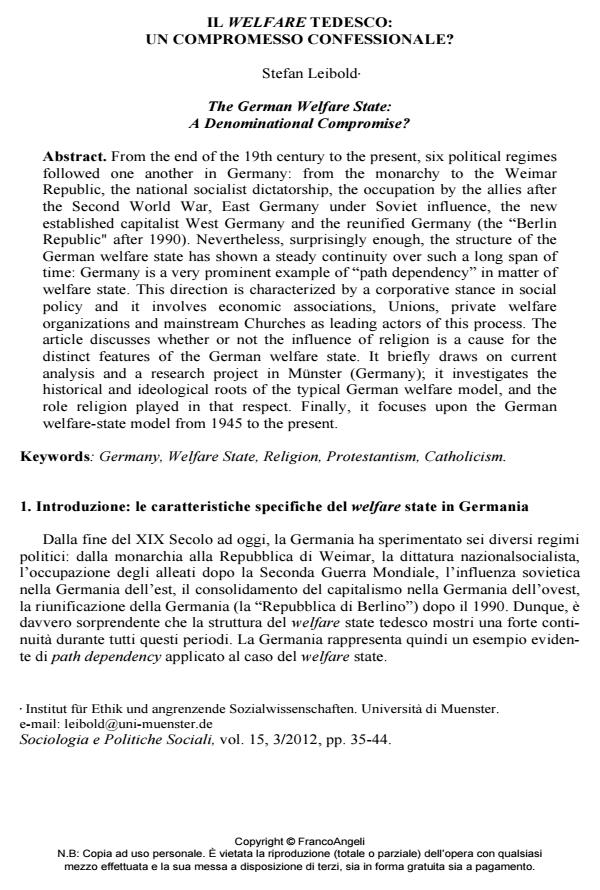The German Welfare State: A Denominational Compromise?
Journal title SOCIOLOGIA E POLITICHE SOCIALI
Author/s Stefan Leibold
Publishing Year 2013 Issue 2012/3
Language Italian Pages 10 P. 35-44 File size 214 KB
DOI 10.3280/SP2012-003004
DOI is like a bar code for intellectual property: to have more infomation
click here
Below, you can see the article first page
If you want to buy this article in PDF format, you can do it, following the instructions to buy download credits

FrancoAngeli is member of Publishers International Linking Association, Inc (PILA), a not-for-profit association which run the CrossRef service enabling links to and from online scholarly content.
From the end of the 19th century to the present, six political regimes followed one another in Germany: from the monarchy to the Weimar Republic, the national socialist dictatorship, the occupation by the allies after the Second World War, East Germany under Soviet influence, the new established capitalist West Germany and the reunified Germany (the "Berlin Republic" after 1990). Nevertheless, surprisingly enough, the structure of the German welfare state has shown a steady continuity over such a long span of time: Germany is a very prominent example of "path dependency" in matter of welfare state. This direction is characterized by a corporative stance in social policy and it involves economic associations, Unions, private welfare organizations and mainstream Churches as leading actors of this process. The article discusses whether or not the influence of religion is a cause for the distinct features of the German welfare state. It briefly draws on current analysis and a research project in Münster (Germany); it investigates the historical and ideological roots of the typical German welfare model, and the role religion played in that respect. Finally, it focuses upon the German welfare-state model from 1945 to the present.
Keywords: Germany, Welfare State, Religion, Protestantism, Catholicism.
Stefan Leibold, Il welfare tedesco: un compromesso confessionale? in "SOCIOLOGIA E POLITICHE SOCIALI" 3/2012, pp 35-44, DOI: 10.3280/SP2012-003004